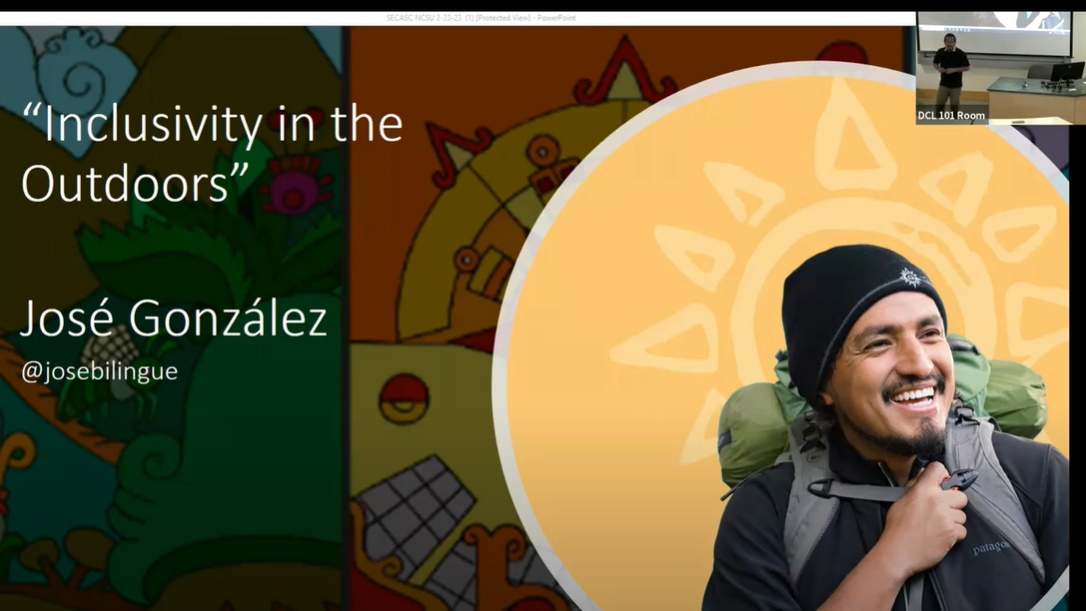Global Change Seminar Summary: Inclusivity in the Outdoors

This post was written by 2022-23 Global Change Fellows Austin Lamica and Murry Burgess, summarizing the first seminar in the Spring Global Change Seminar Series, “Inclusivity in the Outdoors,” on February 23. The panel was moderated by Global Change Fellow, Emily Nastase. The seminar planning team included Julianne Reas, Greivin Ulate Ramirez, and Sophia Rosenberg.
Outdoor inclusivity, cultural diversity, and community engagement are vital parts of building a sustainable, climate-resilient future. To be inclusive, scientists should reexamine the way they communicate with the public and create opportunities for accessible engagement.
The SE CASC Global Change Fellows and the College of Natural Resources, Department of Parks, Recreation and Tourism Management co-hosted José González, founder of the nonprofit Latino Outdoors, professional educator, conservationist, environmentalist, communicator, and a huge force in the outdoor inclusion space. His work centers around bridging culture, identity, and the environment through public communication and engagement.
González began his Global Change Seminar presentation with a discussion of the concepts of self identity and culture, often relating to his own experiences as examples and how those experiences helped him in the creation of Latino Outdoors. He continued with a discussion about the importance of designing systems to be more inclusive and representative of people’s self identity, as well as the associated challenges with developing these types of systems. González continued this part of the presentation with a discussion on the conditions of systemic change.
Throughout his presentation, González frequently highlighted the importance of considering differing worldviews and culture, community engagement, co-production, and healing severed connections with nature. At times, he illustrated this importance by comparing the diversity in these practices with the diversity of ecosystems, emphasizing that a diverse ecosystem often leads to a healthier system overall. To add to this point, he showcased several research results that highlighted broad interest in engaging in various outdoor activities by different racial and ethnic groups. González concluded his presentation with several narrative examples, including a discussion on racially motivated residential mapping practices in the 20th century – known as redlining – and its impact on communities today, as well as Rachel Carson’s role in banning DDT, to demonstrate the importance of showing people how they can be part of the solution.
- Categories:
